
June 24th – 27th, 2024
10am – 4pm ET
Located at Pratt Institute Dye Garden – Brooklyn, NY
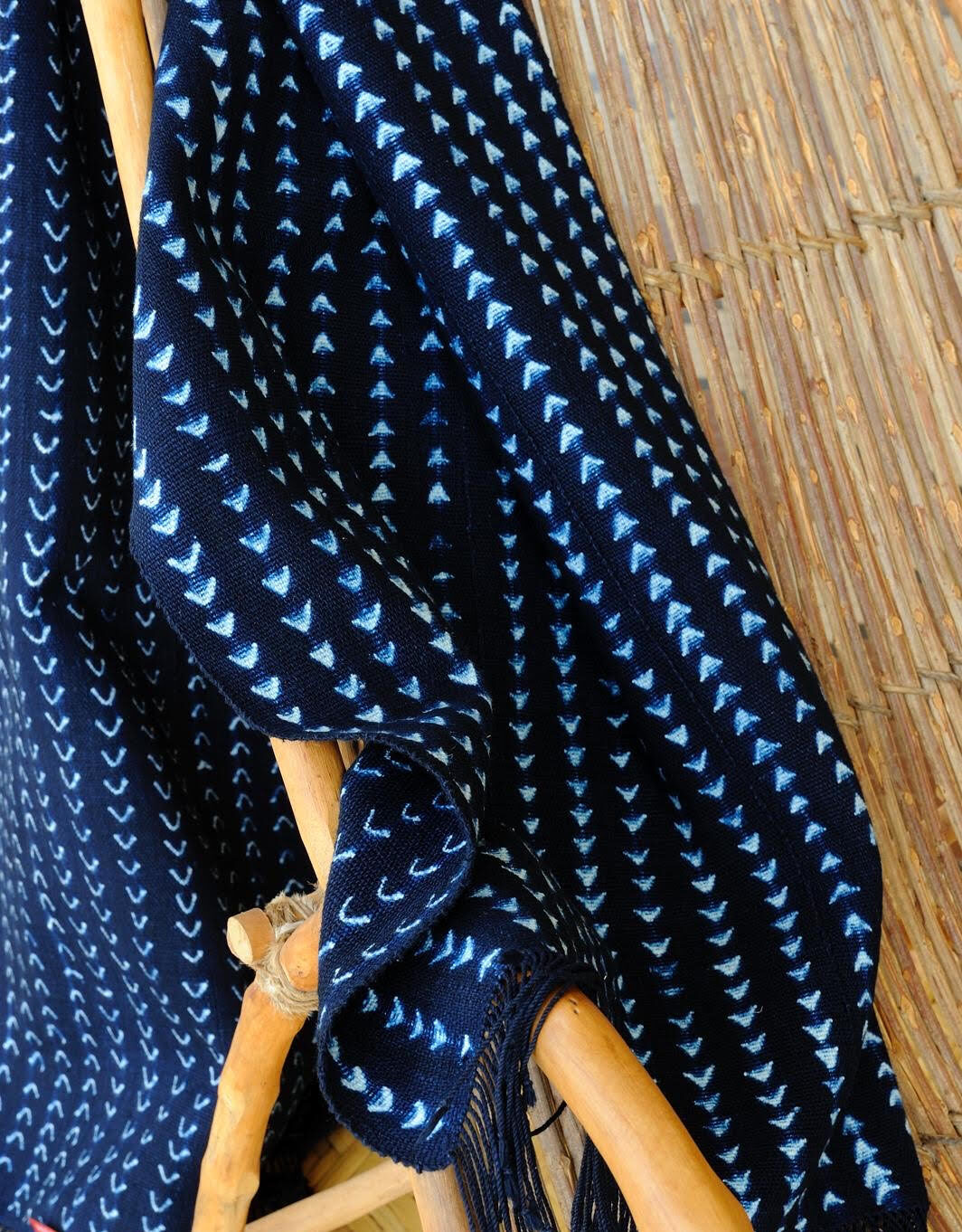
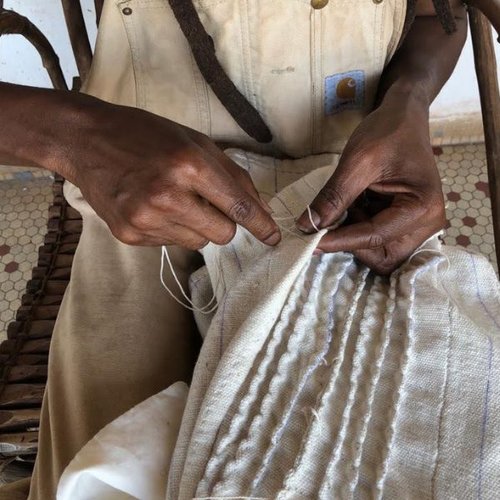

ABOUT FINIMUGU
Finimugu is the traditional and ancestral woven cloth of Mali. Made from handspun cotton, and handwoven on a loom, the strips are stitched together to construct the larger panels of shawls and other garments. Finimugu has an ancient and earthy feel; a beautiful iteration of the landscape from which it comes.
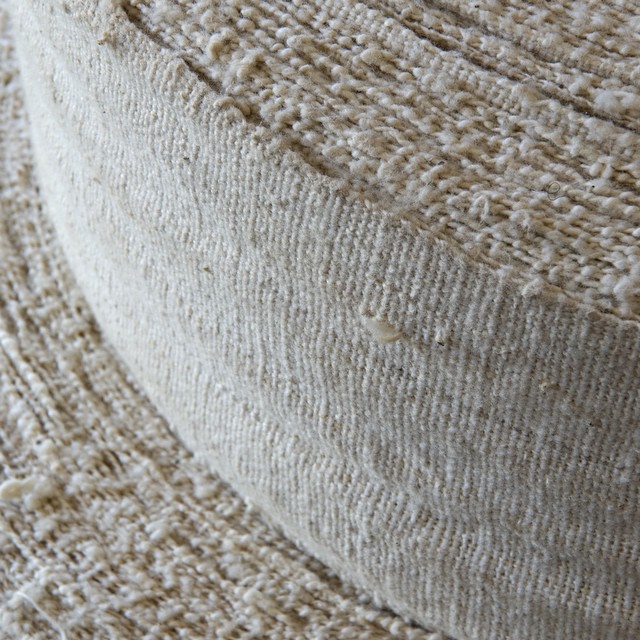
ACTIVITY
Under Aboubakar’s creative guidance, participants will experiment with stitching two to three traditional stitch resist patterns of Malian origin and will learn traditional construction techniques adapted to finimugu (traditional woven fabric of Mali) that students will be able to apply to hand sewing projects well beyond the workshop.
Throughout our time together, Aboubakar will share his experiences revitalizing indigo growing and traditional finimugu weaving in Mali. Participants will come away with the knowledge to create stitch resist patterns with a fostered understanding of the significance of these motifs and the roles that they play in the history of Malian culture.
The workshop is open to all skill levels. We will provide finimugu and lightweight cotton fabrics for dipping, along with the indigo vat, and stitching supplies. Please note that finimugu is a hand-spun and hand-woven cloth.
All workshop materials are plant or earth-based and organically sourced.
LOCATION
PRATT Dye Garden
The Dye Garden is located on the Brooklyn Campus of the Pratt Institute. The garden offers workshops to Pratt Institute and the surrounding community educating on the sustainable and integrative process of natural dyes.
Recognizing the Indigenous knowledge these dyes are based on is central to the garden’s identity, as is an acknowledgement that the garden is built on Lenapehoking territory.
You can read more about the dye garden project here: https://textiledyegarden.pratt.edu/.
Dates
June 24th -27th, 2024
10am – 4pm ET
Location
This workshop will take place at TATTER Studio and the Pratt Institute Dye Garden in Brooklyn, NY.
Cost
$1100
All materials for the course will be provided. All one need bring is an open mind, and willingness to try new things amongst like-minded friends.
Photographs by Francois Goudier and Katherine Hattori
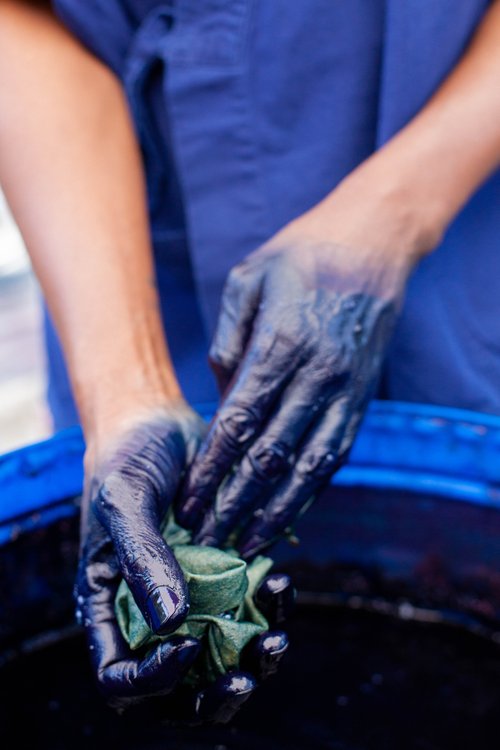
ABOUT THE SHADES IN ABOUBAKAR’S PRACTICE
Aboubakar Fofana’s approach to teaching is much the same as his approach to his own art making. He brings a practice of deep listening, and a generous spirit. His colorwork is rooted in a cosmology of ’12 shades’ of blue. These 12 shades are not just variations of color, rather they connect to 12 states of being, or 12 states of understanding of our spiritual world. Aboubakar’s knowledge of and relationship to indigo are incredibly deep, as he has spent decades honing the cultivation, growth, and preparation of the plant for dye. To learn with him is a unique and special experience, sure to be enriching and inspiring.
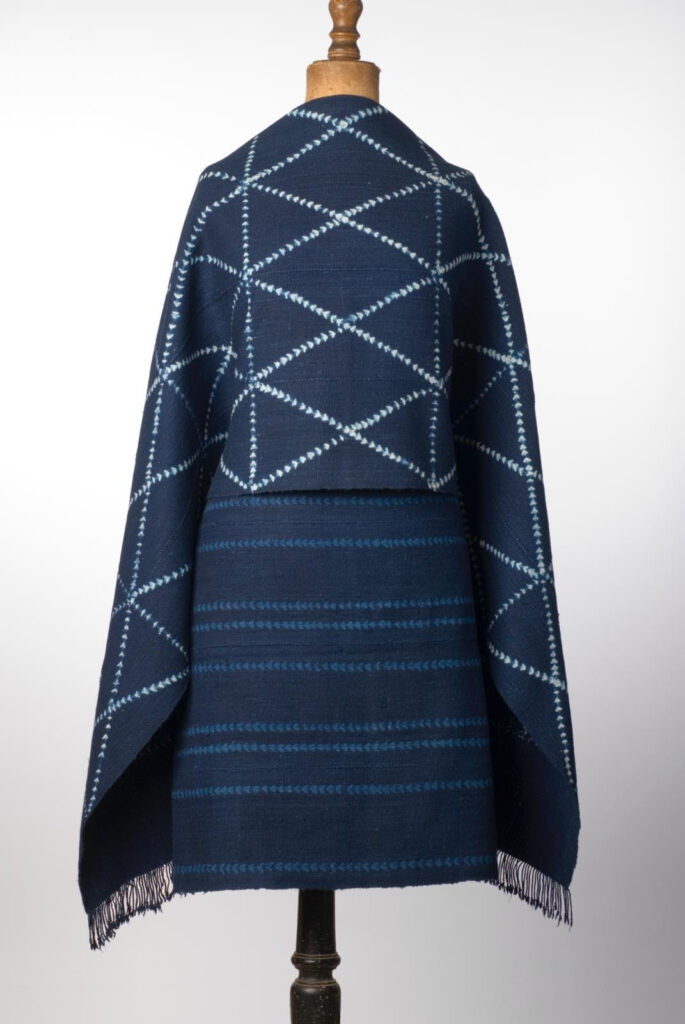
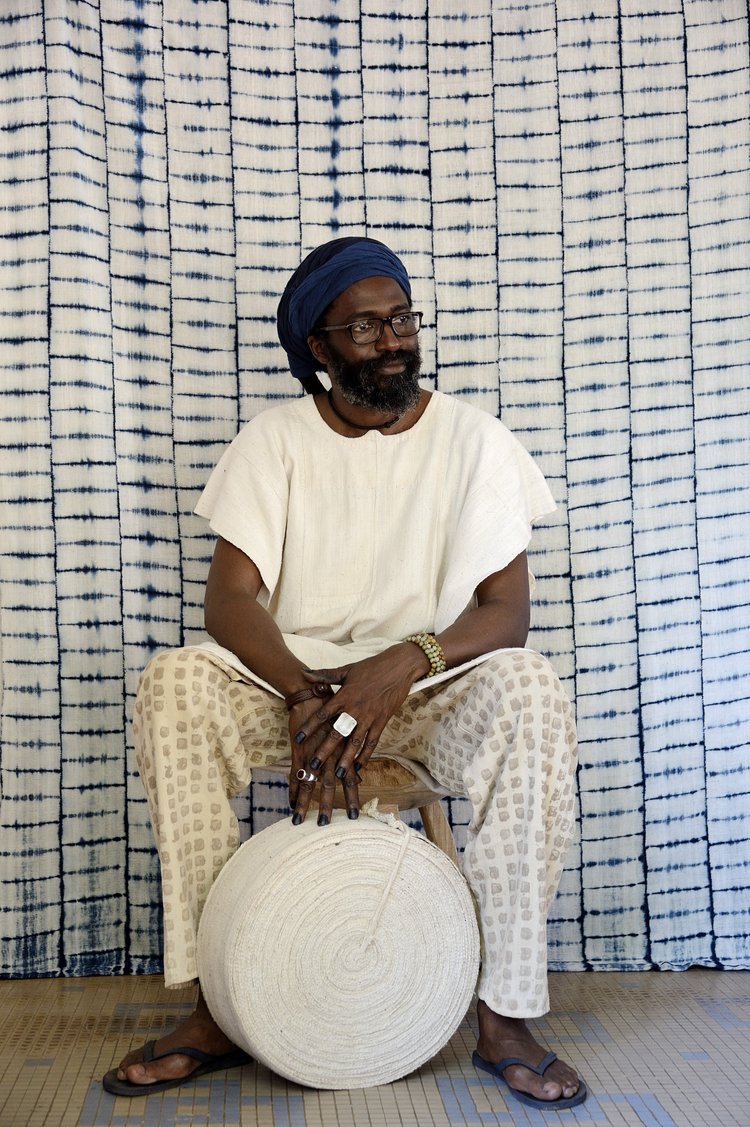
OUR TEACHER
Aboubakar Fofana
Born in Mali and raised in France, Aboubakar Fofana is a multidisciplinary artist and designer whose working mediums include calligraphy, textiles and natural dyes. He is known for his work in reinvigorating and redefining West African indigo dyeing techniques, and much of his focus is devoted to the preservation and reinterpretation of traditional West African textile and natural dyeing techniques and materials.
Fofana’s work stems from a profound spiritual belief that nature is divine and that through respecting this divinity we can understand the immense and sacred universe. His raw materials come from the natural world, and his working practice revolves around the cycles of nature, the themes of birth, decay and change, and the impermanence of these materials. He sees the conception and realisation of this work as a form of spiritual practice which is shared with his audience.
Fofana is currently deeply involved in creating a farm in conjunction with the local community in the district of Siby, Mali, in which the two types of indigenous West African indigo will be the centerpiece for a permaculture model based around local food, medicine and dye plants. This project hopes to contribute to the rebirth of fermented indigo dyeing in Mali and beyond, and represents his life’s greatest project to date.
